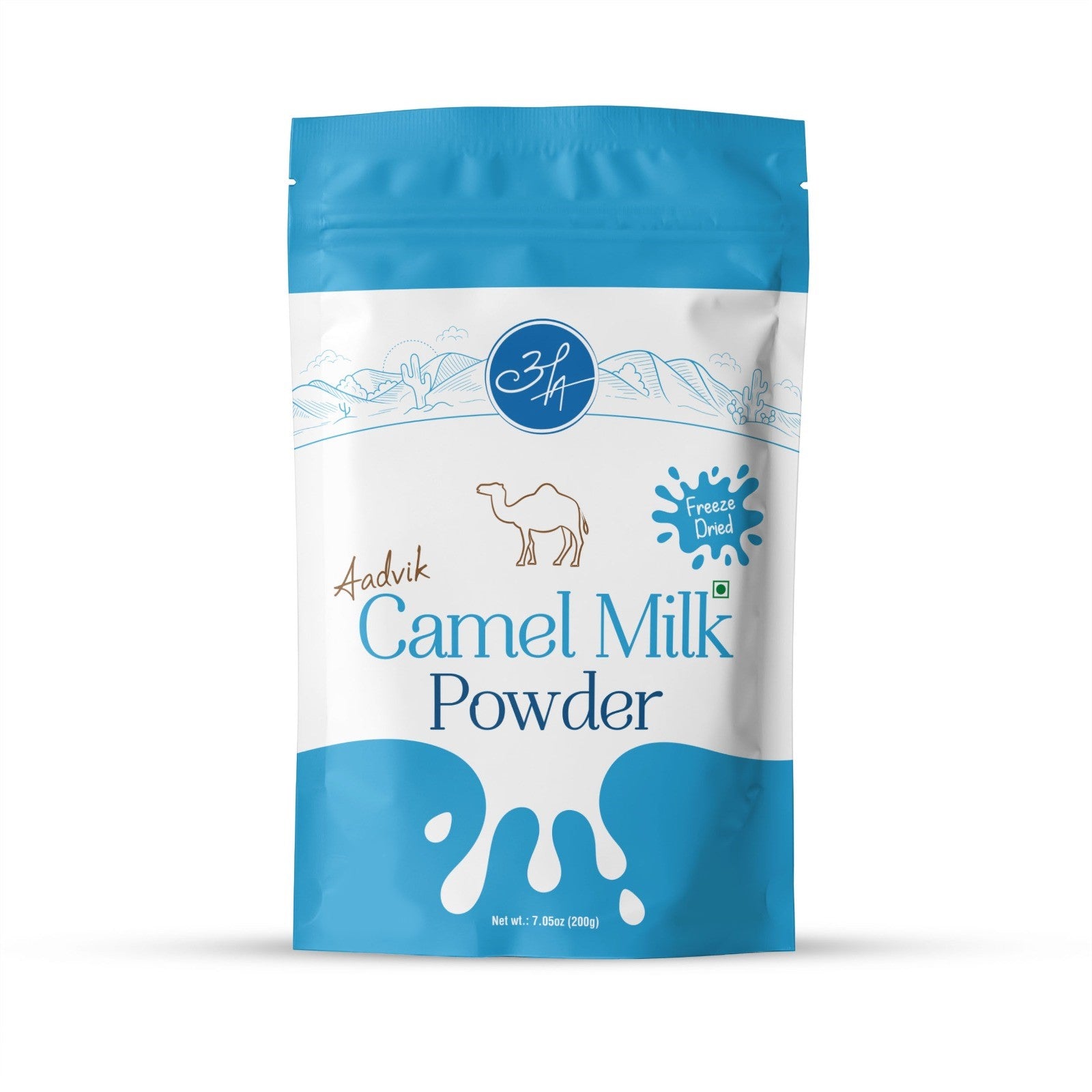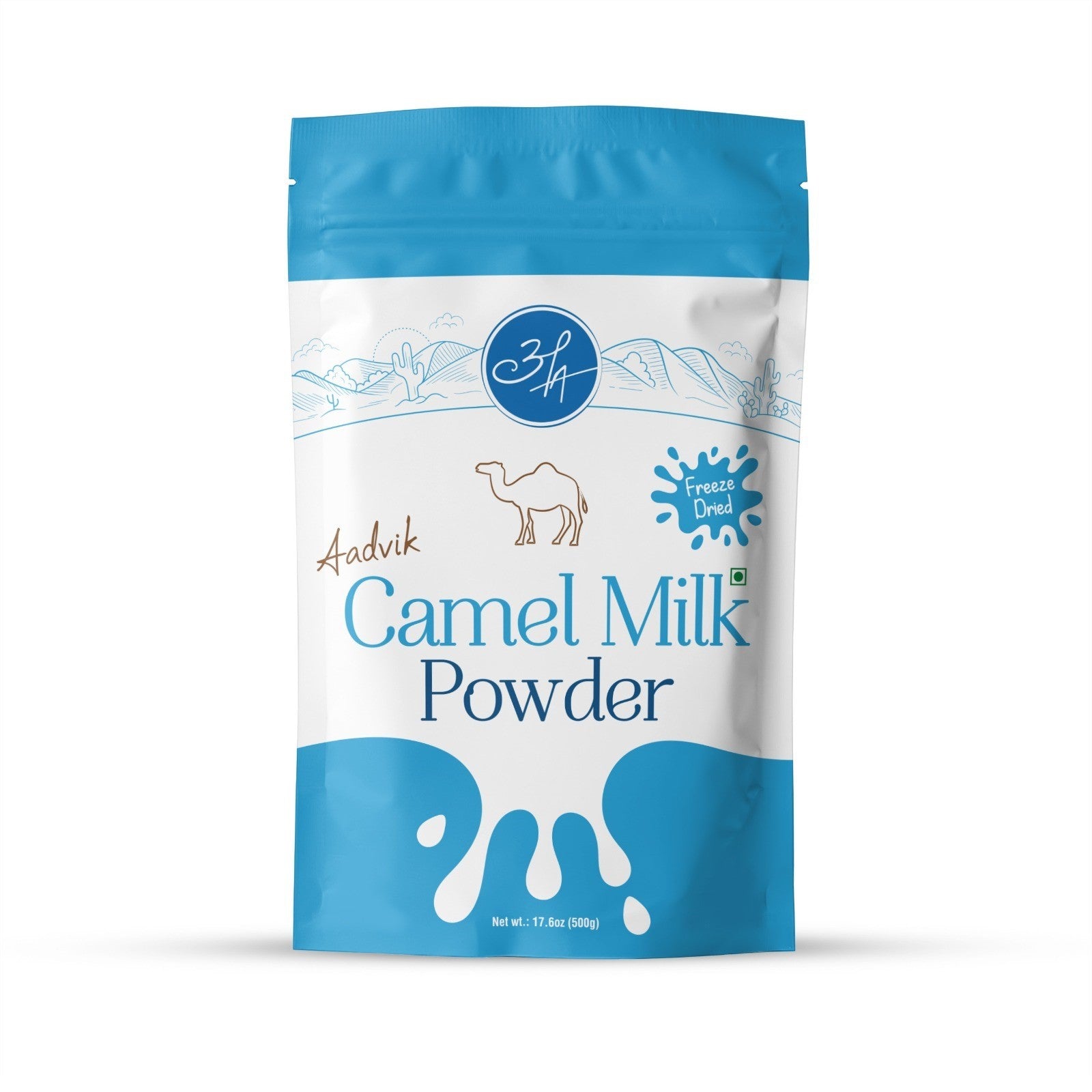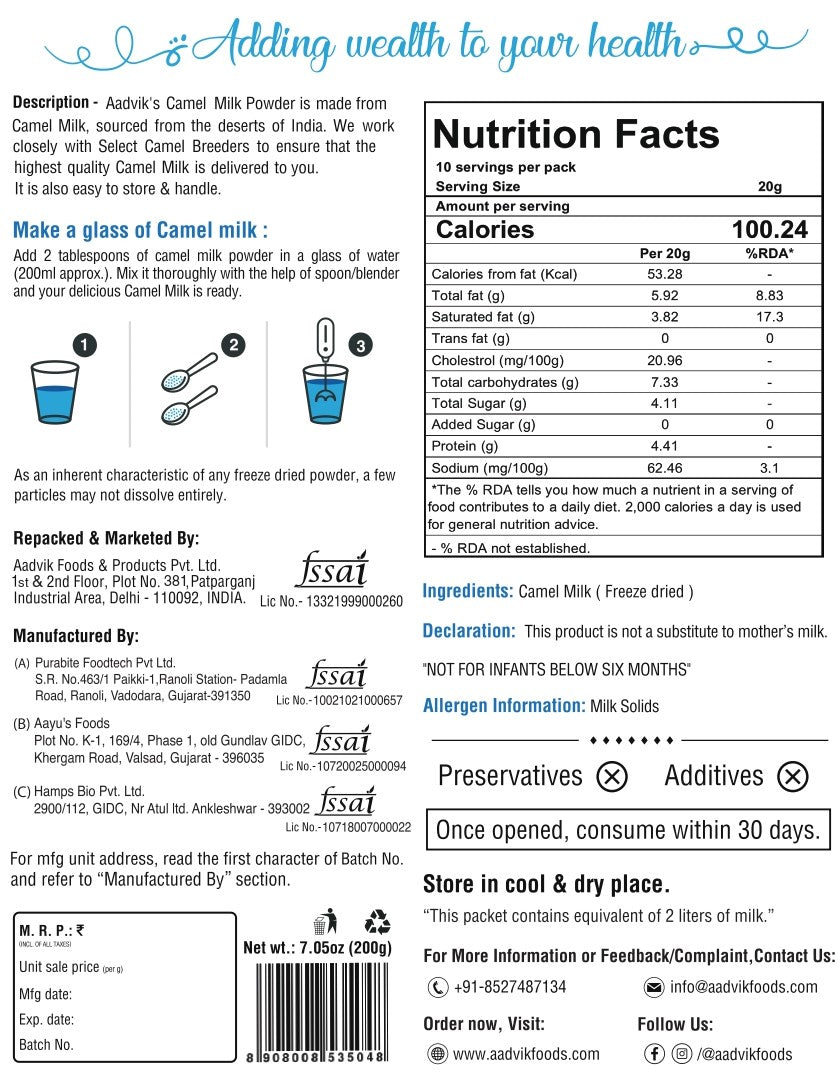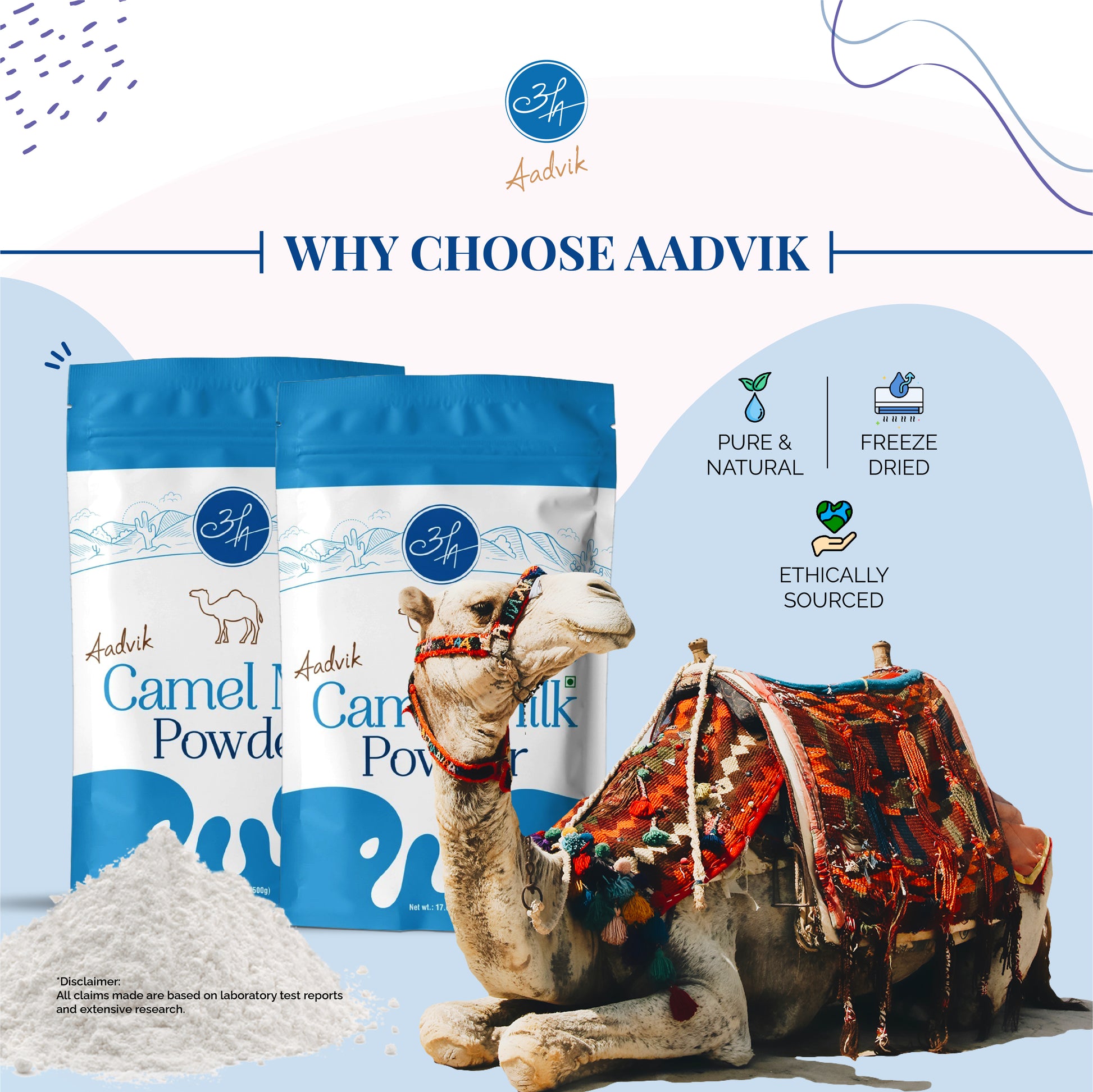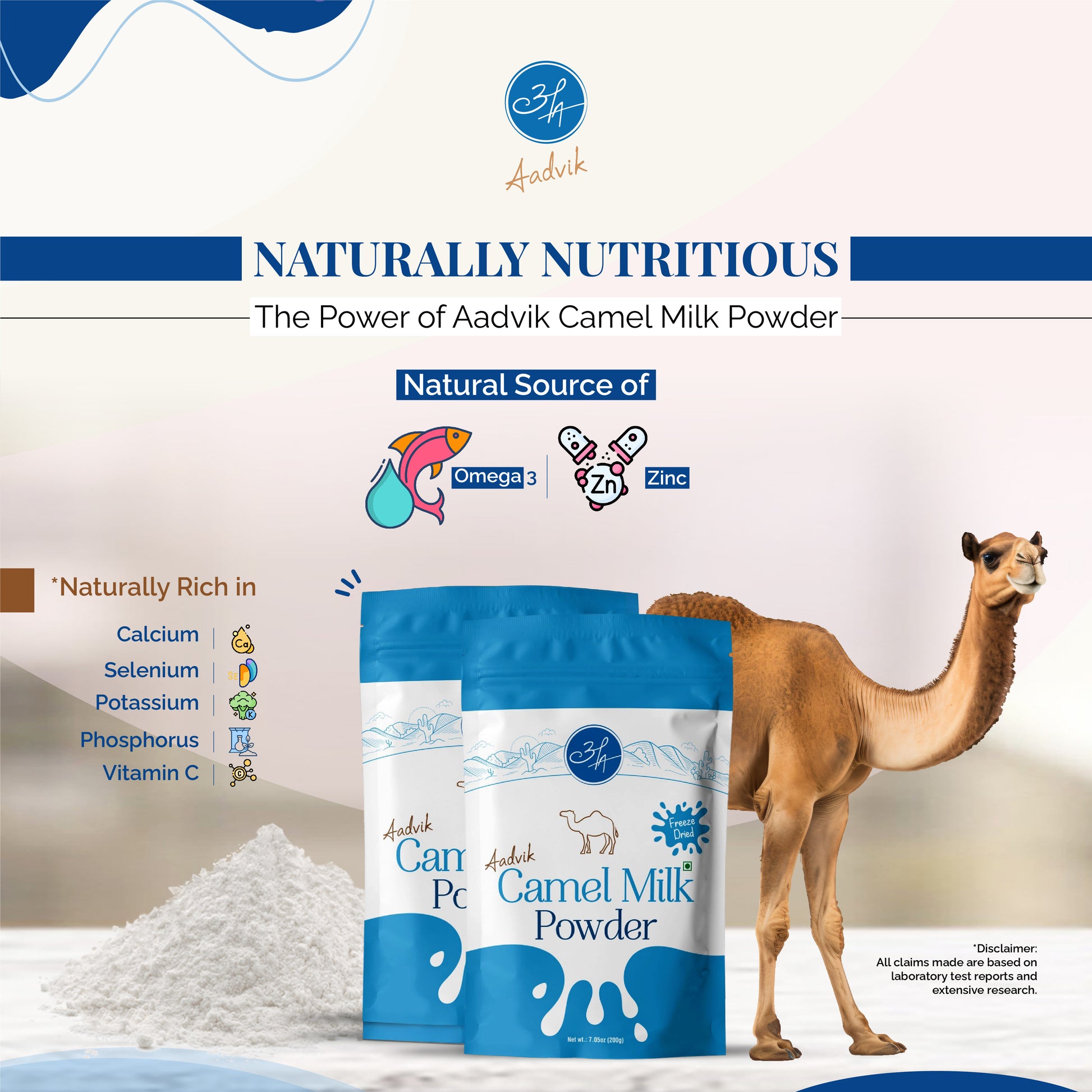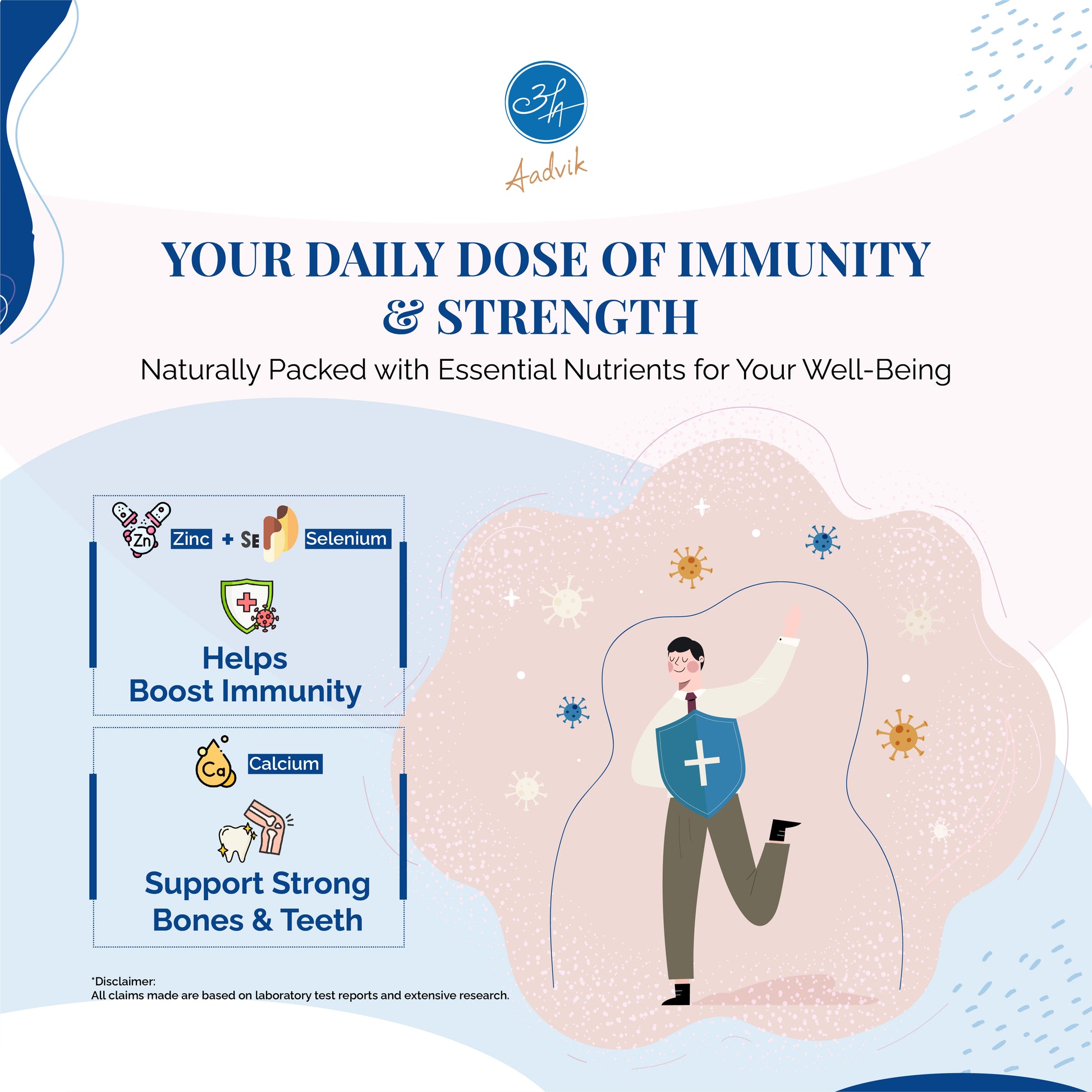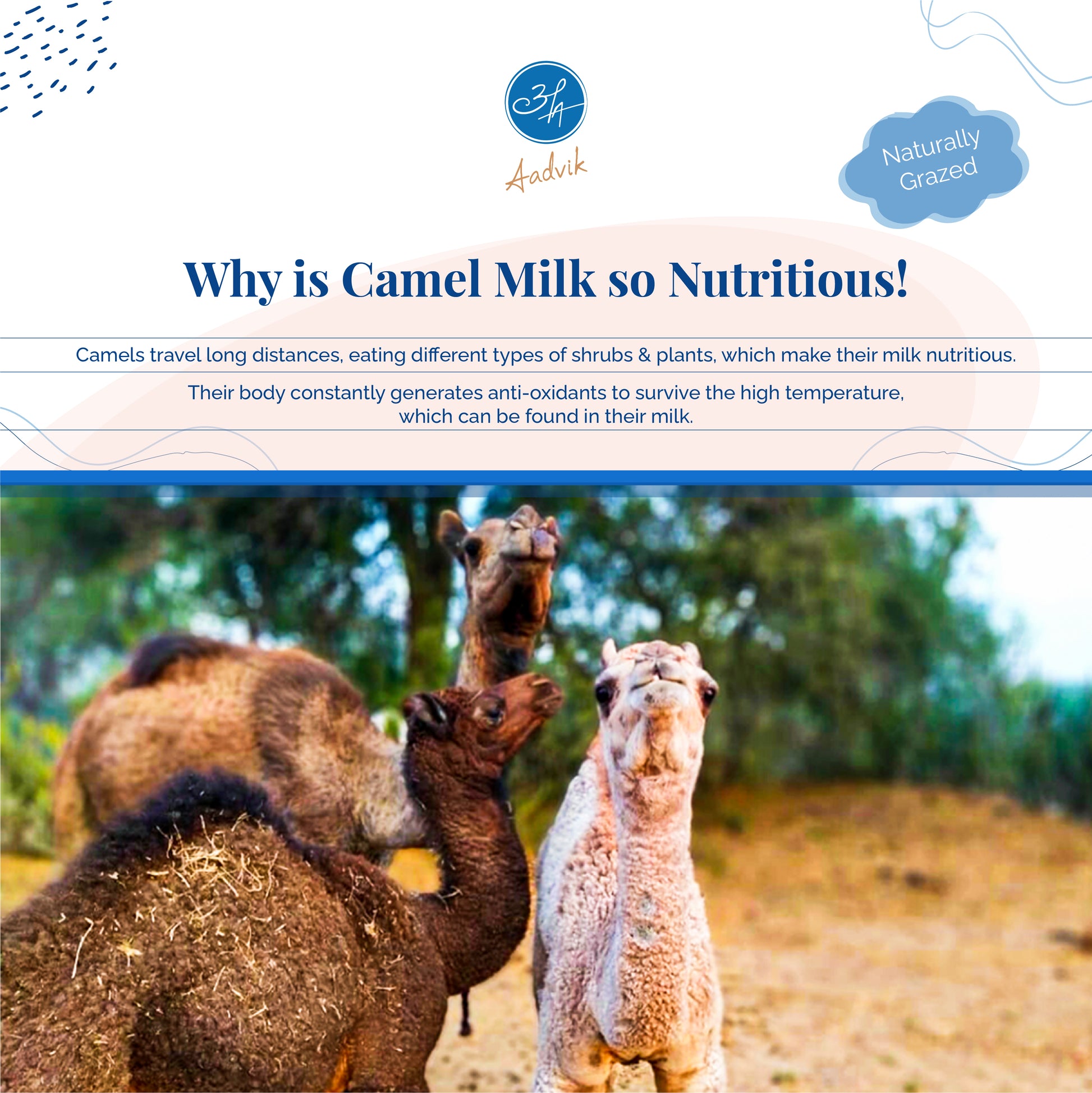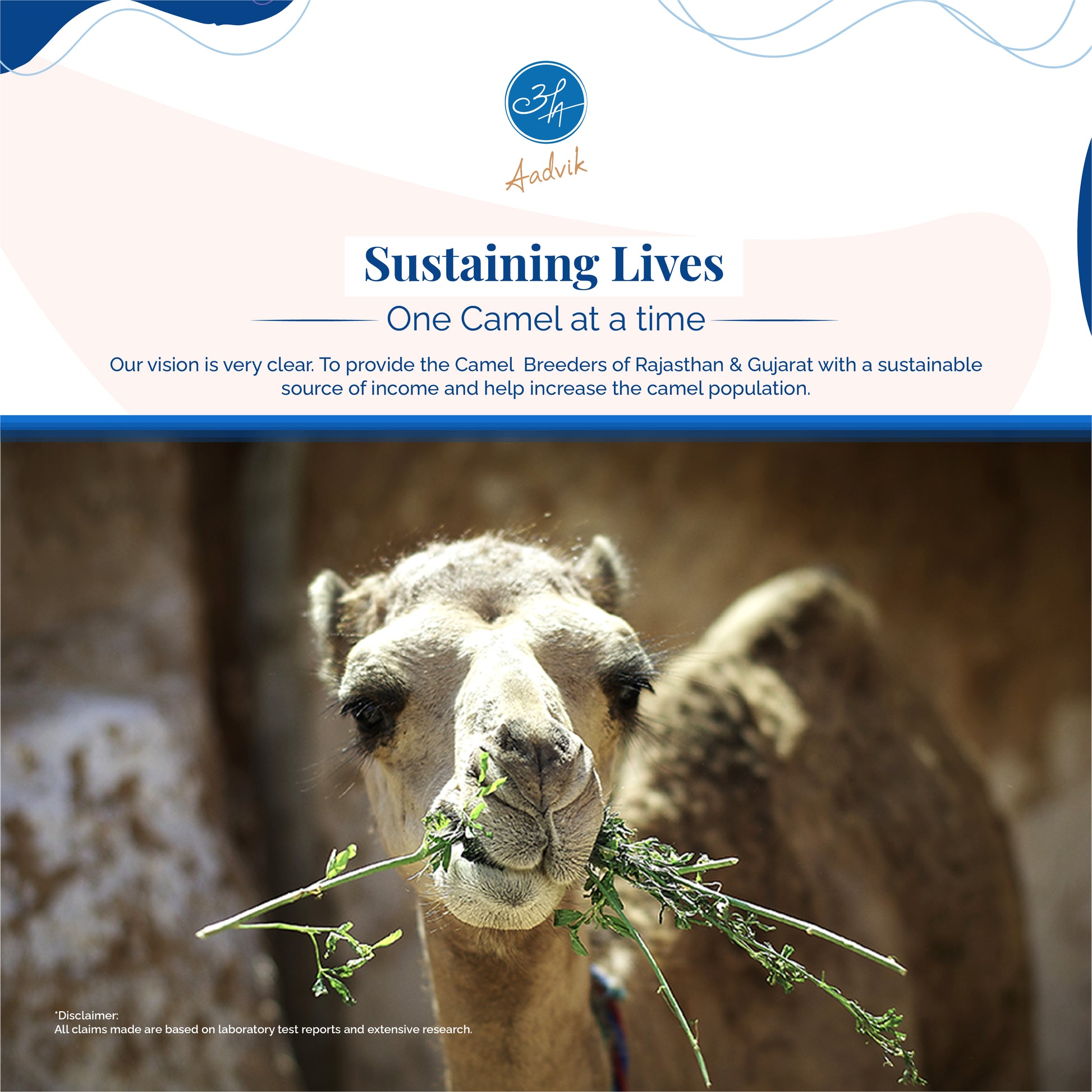Camel Milk Powder | Pure & Natural
Couldn't load pickup availability

Share
- Camel milk is a natural source of Omega-3, Zinc, and Vitamin C, which are known to contribute to overall wellness and support normal immune function.
- It can be part of a balanced routine for maintaining healthy skin and normal vision.
- Naturally contains Selenium, which plays a role in protecting cells from oxidative stress.
- Also provides nutrients like Potassium and Phosphorus, which are essential for normal muscle, nerve, and bone functions.
Product Description:
This isn’t just milk powder. It’s centuries of wisdom, freeze-dried.
Introducing Aadvik's Camel Milk Powder – a blend of heritage and nutrition, crafted for the conscious you.
Made with advanced freeze-drying technology, each scoop retains the natural properties of Vitamin C, Calcium, and Zinc. These essential nutrients play a role in supporting wellness and bone health.
All this, with zero preservatives and nothing artificial. Just pure, nutrient-rich milk… the way nature intended.
Why Aadvik?
Because every scoop supports a story.
We ethically source our camel milk from trained breeders in India. Not farms, but families.
The Rabari and Raika herders, guardians of the desert, have cared for camels for generations. Their bond with these gentle animals runs deep, and your choice helps sustain their legacy, their livelihoods, and their land.
In 2024, the world celebrated the International Year of Camelids, recognizing the vital role camels play in food security and sustainable development. At Aadvik, that celebration continues every day, as we work hand-in-hand with camel herding communities to bring you purity with purpose.
You’re not just buying milk powder – you’re empowering communities, protecting camels, and fueling a movement.
Nutritional Information Per Serving
Calories: 53.28 Kcal
Fat (g): 5.9
Carbohydrate (g): 7.3
Protein (g): 4.4
Added sugar: 0
Storage Instructions
-
Store in a cool and dry place away from moisture.
-
Recommended storage temperature: 2–8°C.
Shelf life
-
1 year when unopened.
-
Once opened, consume within 1 month.
How to Use
Mix camel milk powder with warm or cold water until fully dissolved.
Suggested Daily Use
1–2 teaspoons in a glass of water is generally a good daily intake amount.
Easy-to-Make Recipes
-
Camel Milk Smoothie – Blend with fruits like bananas and berries.
-
Camel Milk Tea or Coffee – Add to tea or coffee for a creamy texture.
-
Baked Goods – Use in muffins, pancakes, or other baked recipes.
Camel milk powder is versatile and easy to include in daily meals.
What Makes Camel Milk Special
-
Naturally gentle, making it a suitable option for those with sensitive digestion.
-
Contains essential nutrients like Zinc, Selenium, and Vitamin C.
-
May support clear skin and general wellness.
-
Potassium helps support active lifestyles by contributing to normal muscle function.
-
Calcium and Phosphorus contribute to the maintenance of normal bones and teeth.
-
Selenium helps protect cells from everyday oxidative stress.
-
A nutritious, easy-to-digest alternative to traditional dairy.





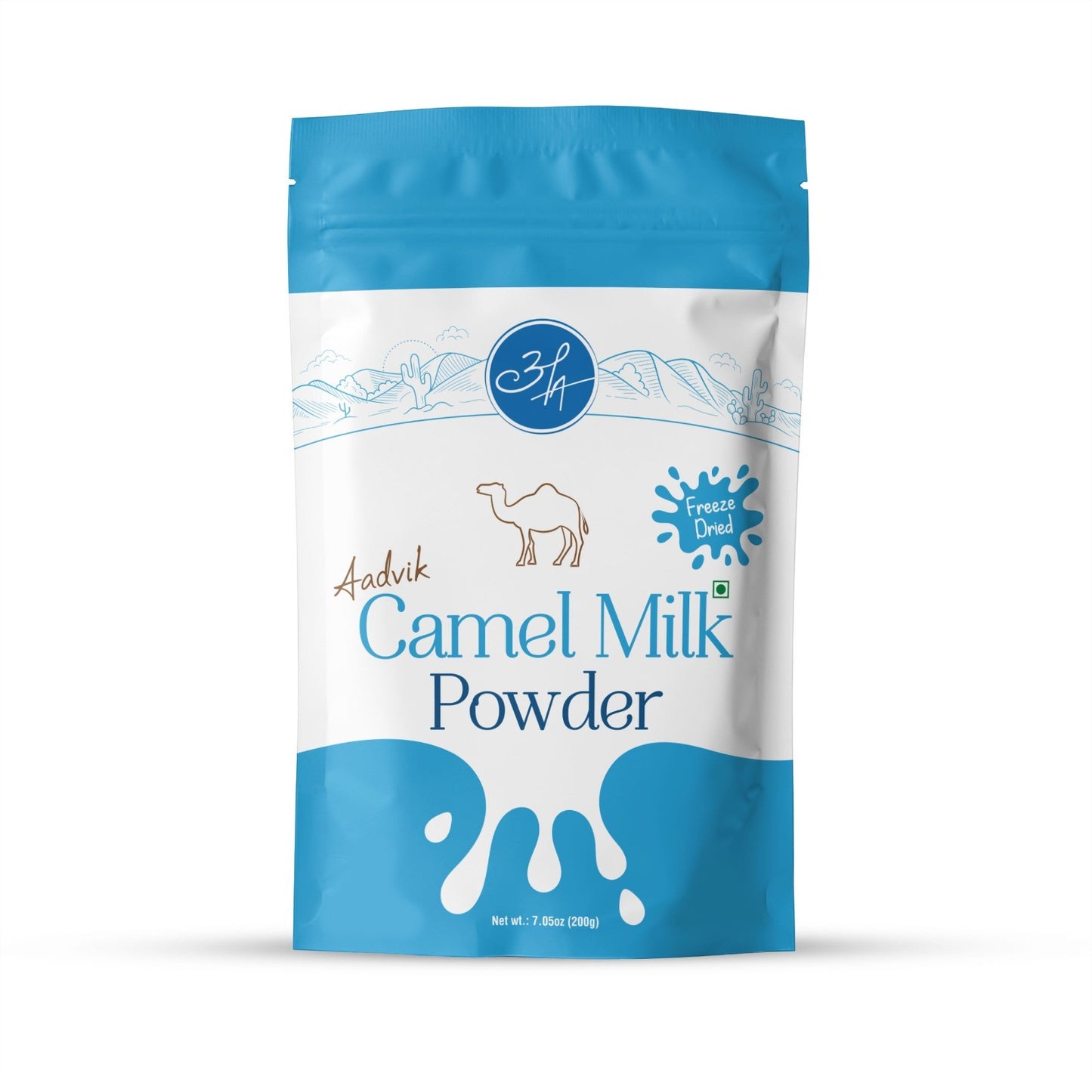
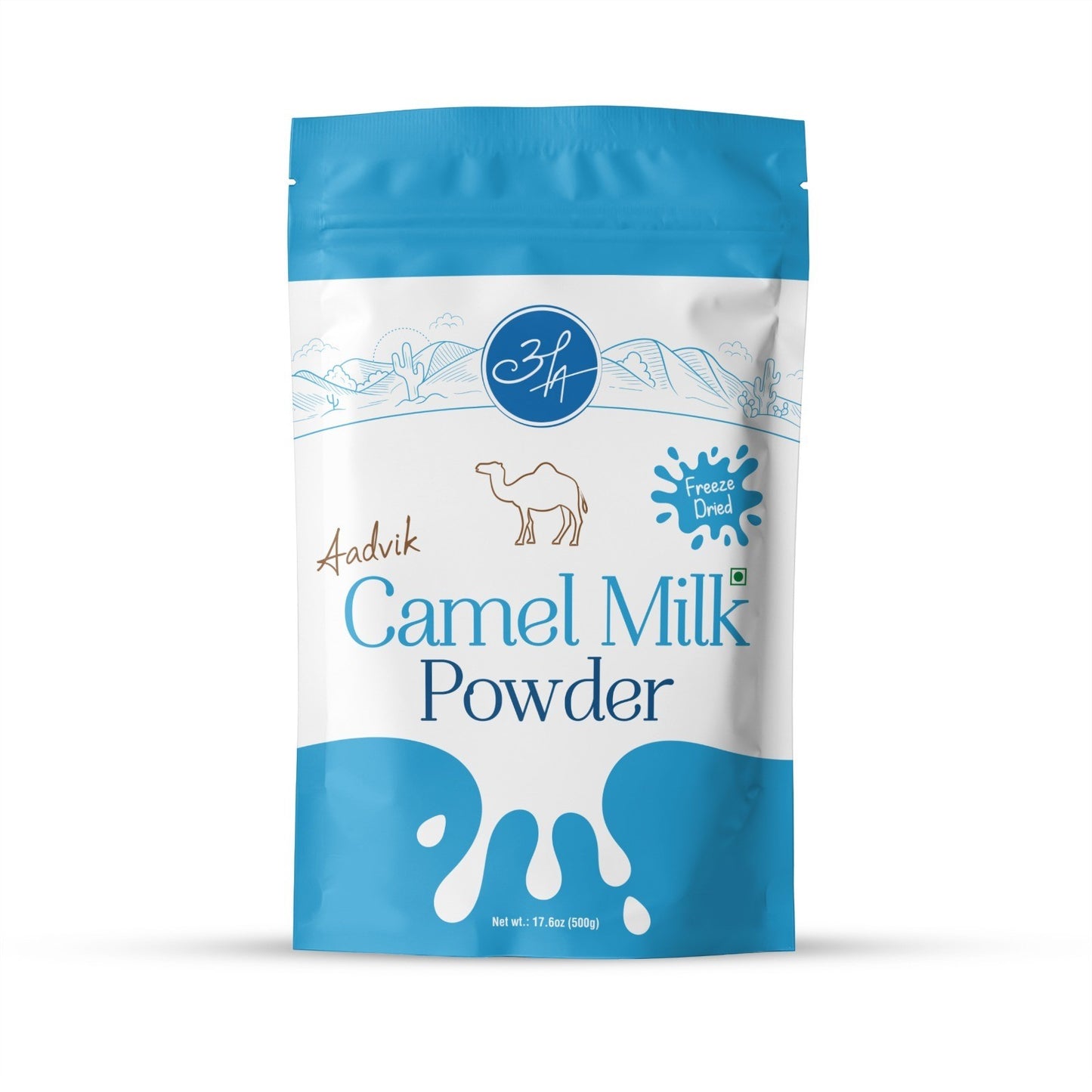
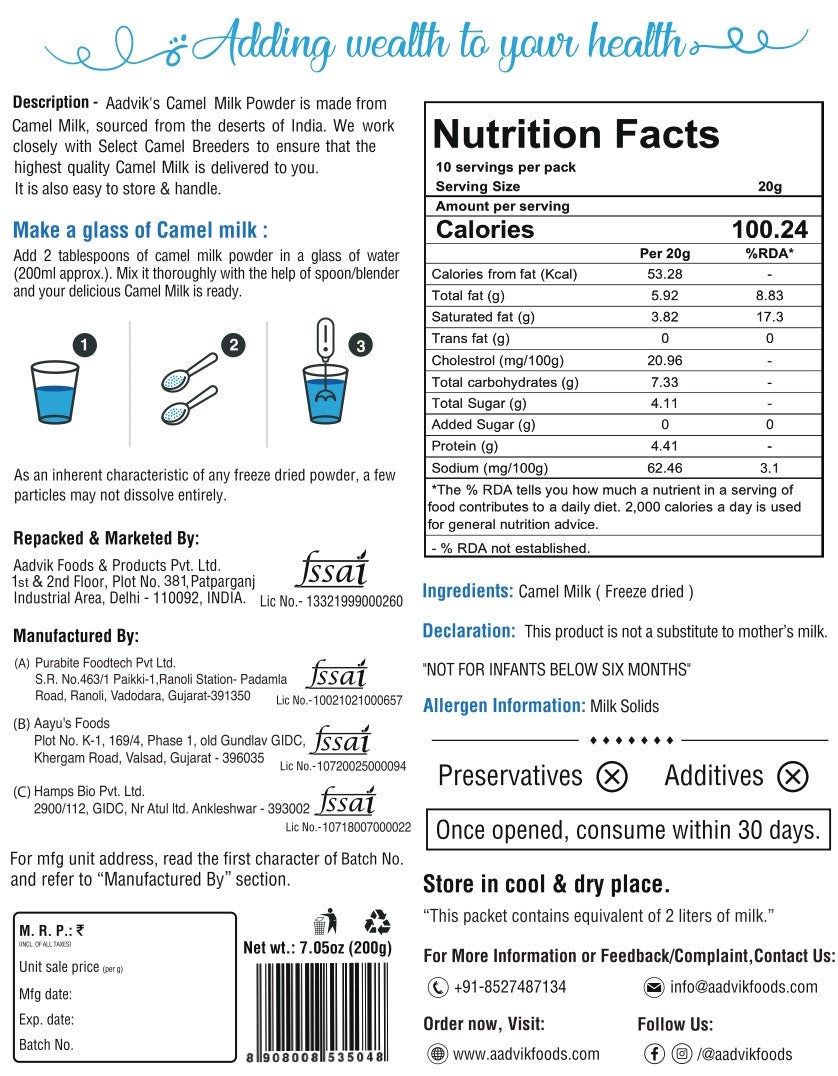
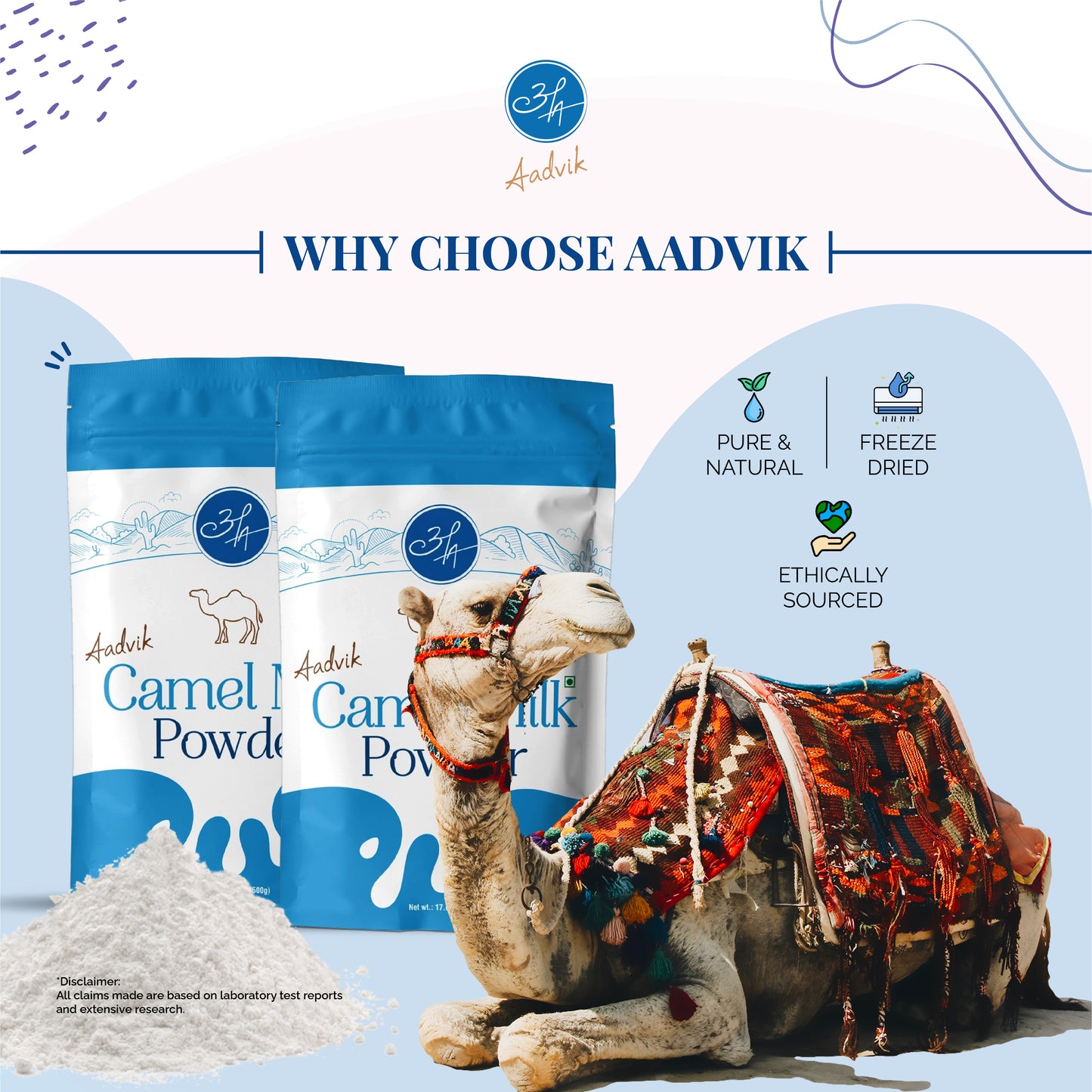
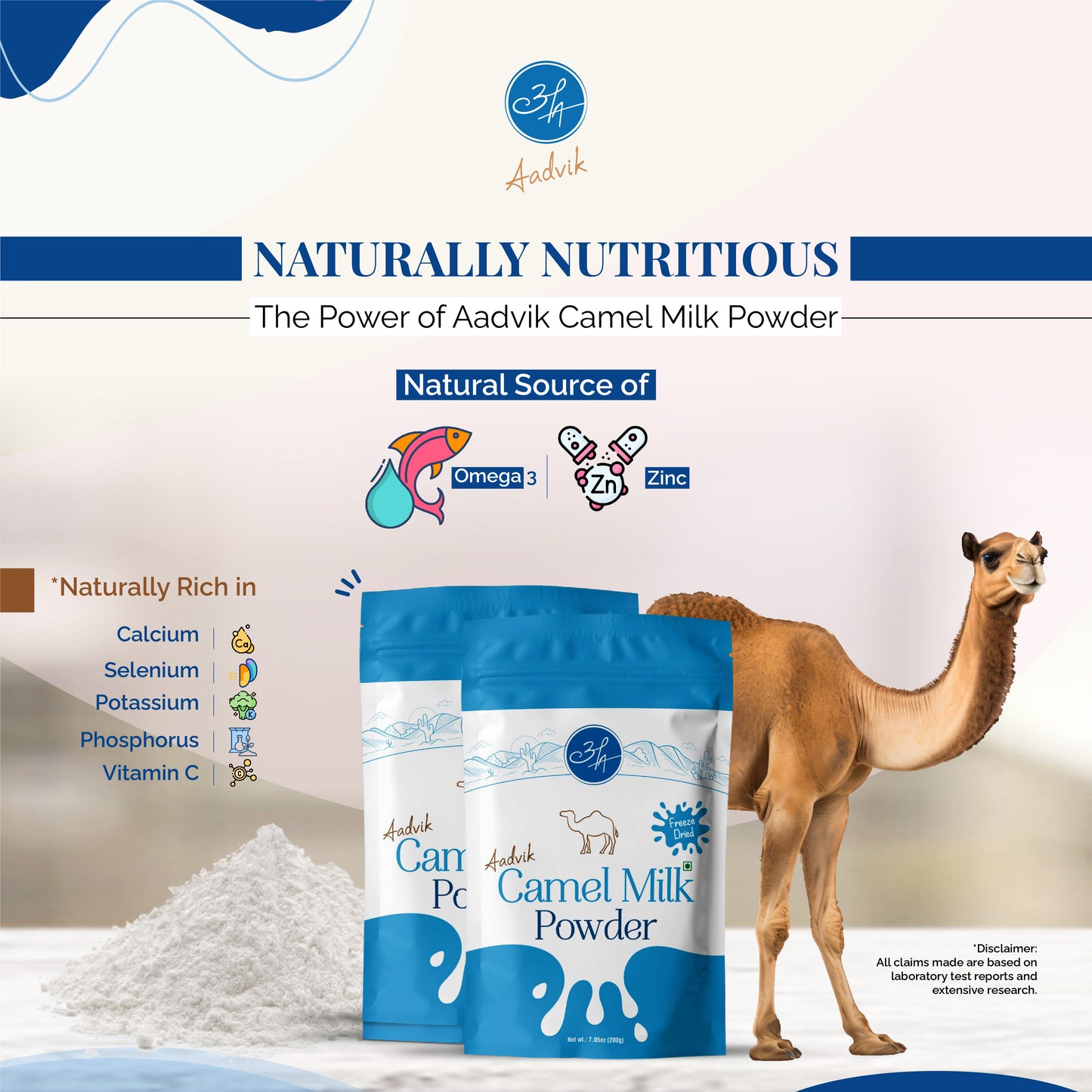
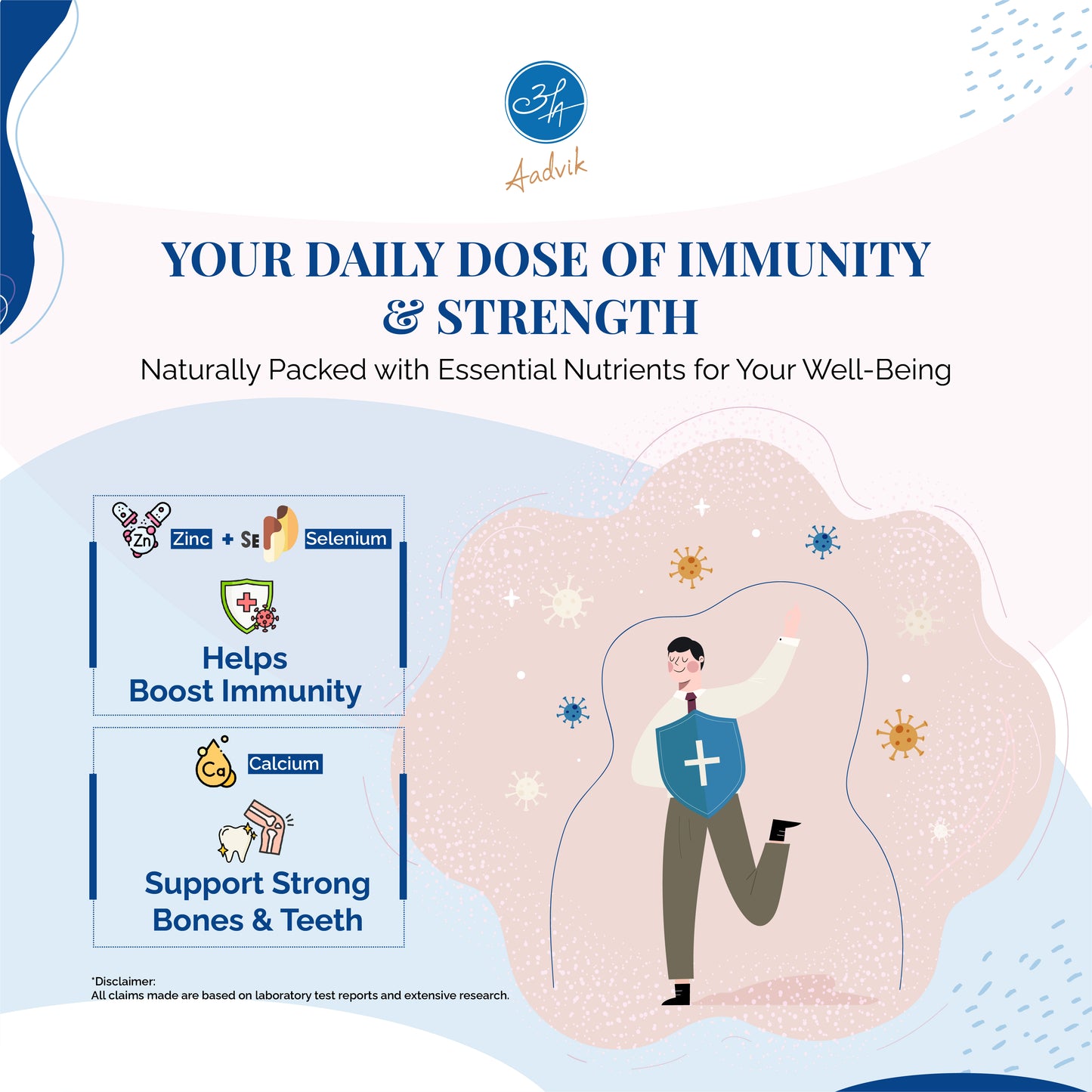
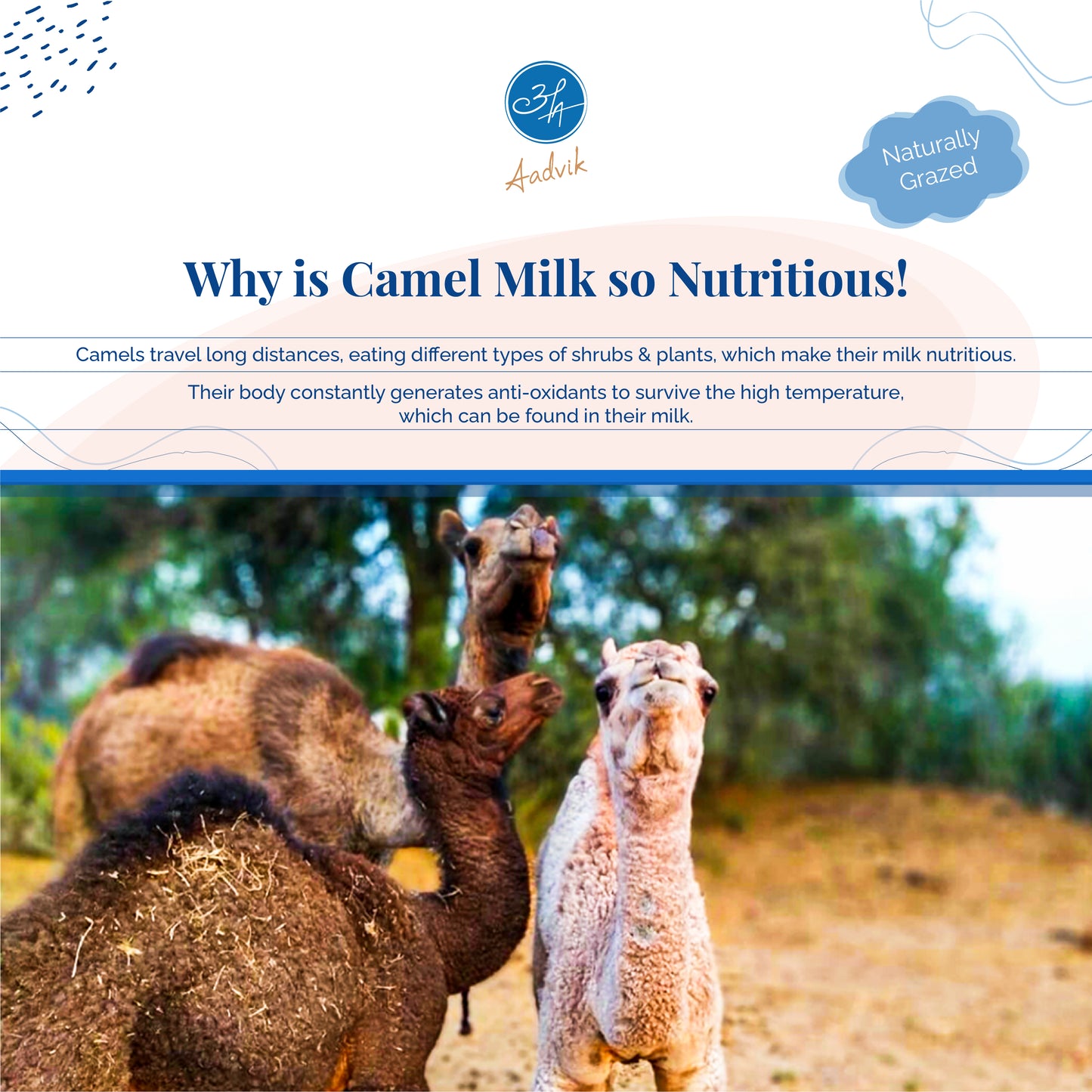
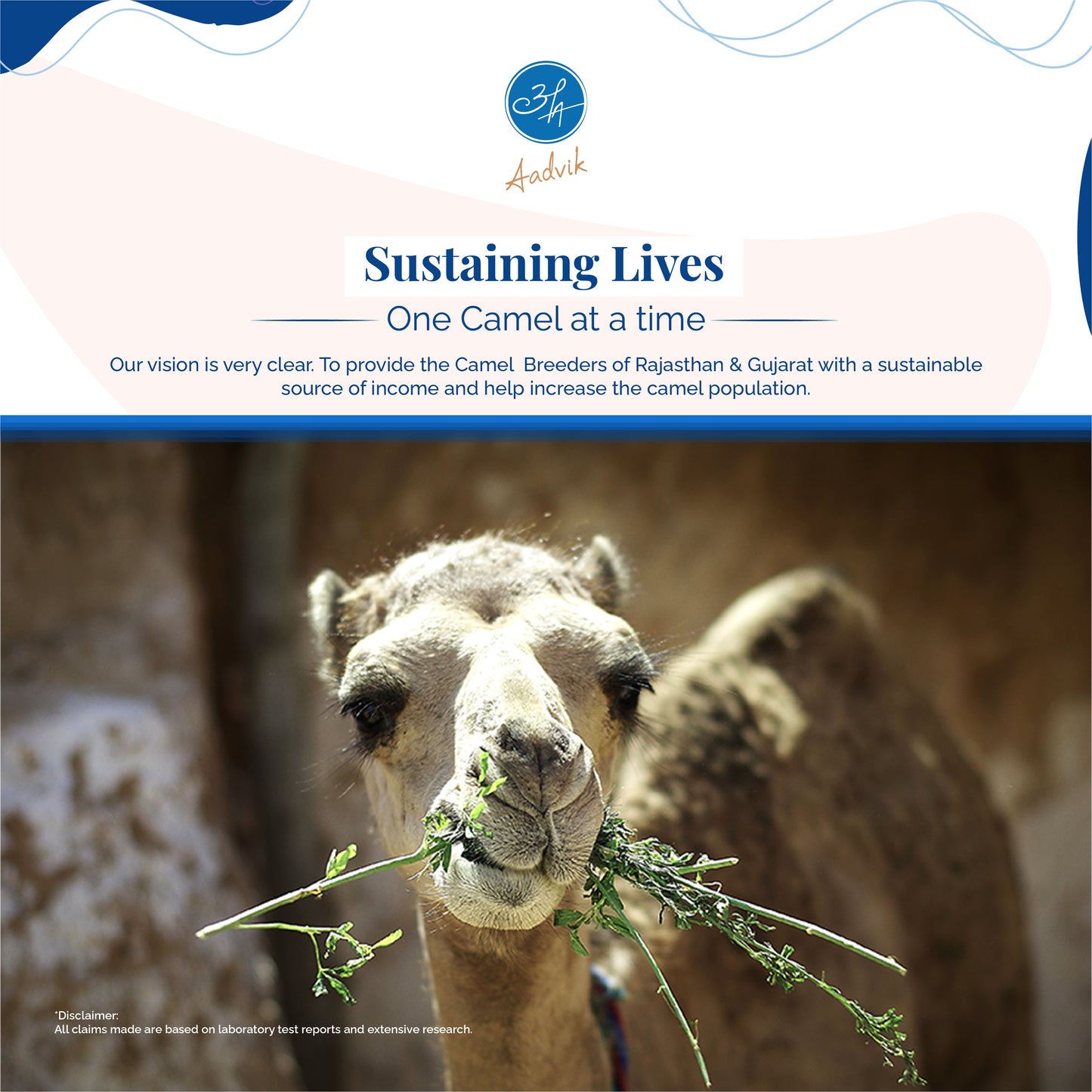
Good but Costly
Nice one
Camel Milk Powder | Pure & Natural
Camel Milk Powder | Pure & Natural
I have tried it. I am not sure about the purity however it is well packaged and easy to handle.
Frequently Asked Questions ?
Why is camel milk expensive?
Camel milk is more costly than cow’s milk because camels produce much less milk, and they require special care, feeding, and handling. On top of that, the supply is limited while demand is steadily increasing. This combination of lower supply and higher demand also contributes to the higher price.
Is camel milk better than cow's milk?
For many people, yes. It’s lighter on the stomach, easier to digest, and has fewer allergens. It also has good nutrients like protein, vitamins, minerals, and A2 protein, which some people find gentler than the regular cow’s milk protein.
Does camel milk have any side effects?
Camel milk is usually well-tolerated, but if you have a milk allergy or sensitivity, it’s best to consult your healthcare provider before trying it.
Can camel milk increase height?
No milk directly increases height. What camel milk does is provide calcium and nutrients that keep your bones strong, which is part of healthy growth overall.
Is camel milk powder as good as fresh camel milk?
Yes, camel milk powder retains most of the natural nutrients and benefits of fresh camel milk when processed properly. Simply reconstitute it with water, and it’s ready to enjoy while keeping its goodness intact.
How much camel milk powder should I drink daily?
1–2 glasses (roughly 200-400 ml) a day is enough for most people. Just check the instructions on the pack or ask a nutritionist if you’re unsure
Which is better to consume pasteurized or raw?
Pasteurized camel milk is safer for daily consumption as it kills harmful bacteria while keeping most nutrients. Raw milk is natural but may carry health risks if not handled carefully
What are the miracles of camel milk?
While miracle is a strong word, camel milk is often called desert gold because of its unique nutrient profile. it contains lower A1 Beta casein than cow making it easier to digest for many. It is naturally high in Vitamin C, Iron, and Zinc, and contains protective proteins like lactoferrin which support a healthy immune system.
What are the benefits of camel milk powder?
Camel milk powder is essentially liquid camel milk with the water removed. The biggest benefit is convenience it has a much longer shelf life and doesn't require constant refrigeration until mixed. It retains almost all the nutritional value of fresh milk, making it an excellent way to get your minerals and proteins while traveling or living in areas where fresh supply is limited.
- Choosing a selection results in a full page refresh.

